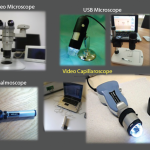Gastrointestinal Disease
Up to 70% of patients with scleroderma report taking medications for gastrointestinal (GI) symptoms.2 Possible risk factors for severe GI disease include the presence of anti-U3 RNP, anti-U11/U12 RNP and anti–muscarinic-3 receptor (M3R) antibodies, and African American race.2 Gastroesophageal reflux disease, gastroparesis, dysmotility and gastric antral vascular ectasia (GAVE) are among the forms of gastrointestinal involvement that patients may experience and coordination of care with a gastroenterologist is often required.
In Sum
Through this thoughtful and accessible presentation, Dr. Hummers shed light on important topics related to the care of patients with scleroderma.
Jason Liebowitz, MD, completed his fellowship in rheumatology at Johns Hopkins University, Baltimore, where he also earned his medical degree. He is currently in practice with Skylands Medical Group, N.J.
References
- SpieraR, Kuwana M, Khanna D, et al. OP0171 Phase 3 trial of lenabasum, a CB2 agonist, for the treatment of diffuse cutaneous systemic sclerosis. Ann Rheum Dis. 2021;80 (Suppl 1):102–103.
- Miller JB, Gandhi N, Clarke J, McMahan Z. Gastrointestinal involvement in systemic sclerosis: An update. J Clin Rheumatol. 2018;24(6):328–337.


